The Kansas City Scouts existed for all of two seasons in the National Hockey League. 160 games played, but a mere 27 wins. The team scored a total of 374 goals in that time – just a little bit more than two goals per game. Meanwhile, the Scouts allowed a whopping 679 goals against, or an average of more than four a game. Such a lopsided goal differential, and the losses understandably piled up.
The Scouts finished second to last in both 1974-75 and 1975-76. Not exactly thrillsville. That does not mean though that there were not some diamonds in the rough.
Kansas City drafted an eventual 350-plus goal scorer. They plucked a Stanley Cup champion off of the “Broad Street Bullies” in the 1974 NHL Expansion Draft. The Scouts even acquired a goalie who would go on to win both the Vezina Trophy and the William M. Jennings Trophy. Ultimately though, the (very) modest amount of talent that Kansas City did possess was not enough to withstand 1970s NHL powerhouses like the Montreal Canadiens, Philadelphia Flyers, Buffalo Sabres, and Boston Bruins.
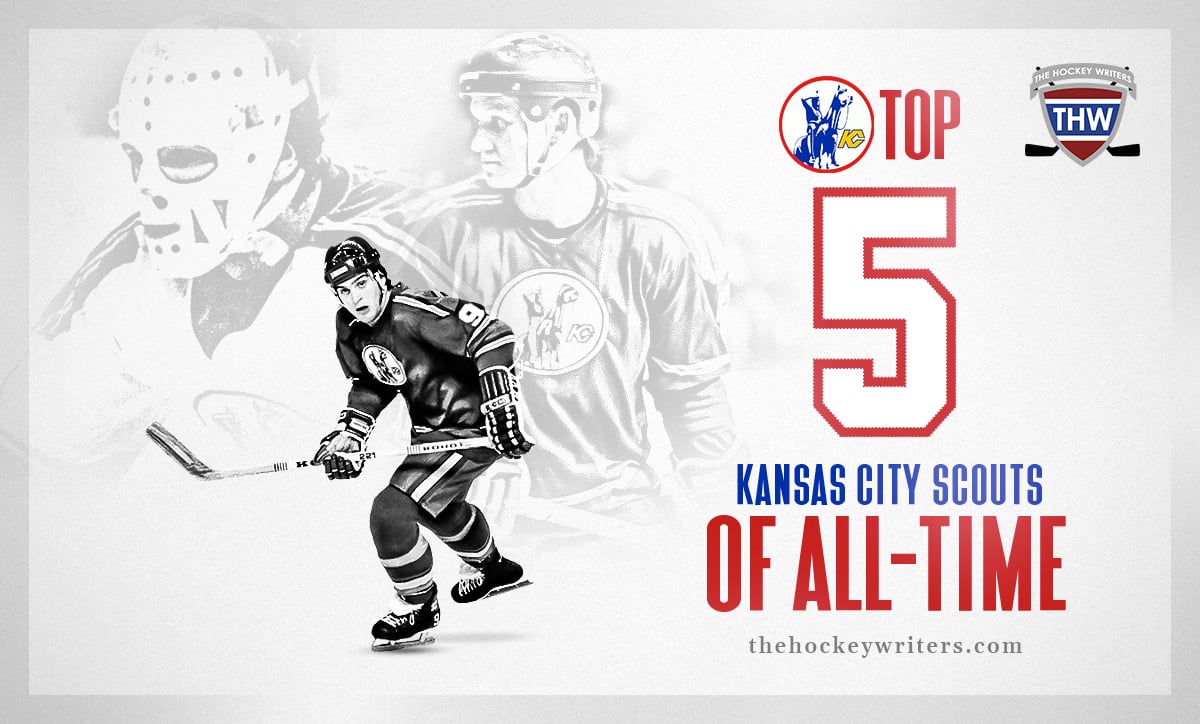
The Scouts became but a fleeting memory. During the summer of 1976, the team relocated to Colorado to become the Rockies. Even in Colorado the team only managed to remain viable for six seasons before moving to New Jersey where they have remained ever since as the better known and far more renowned Devils.
But let us not close the page on the Scouts so quickly. It has been more than 40 years since their last NHL game at the old Kemper Arena. We have the luxury of hindsight now, and can take a look back at the team’s top performers.
THW ranks for you the five most proficient players in the brief history of the Kansas City Scouts.
5) Gary Bergman
Golden oldie Gary Bergman was 37 years old when he became a member of the Scouts. The team acquired him on Aug. 22, 1975 from the Detroit Red Wings, along with netminder Bill McKenzie in exchange for goalie Peter McDuffe and center Glen Burdon. Bergman had already played 11 seasons in the NHL prior to the trade, and solidified himself as an earnest, hard-nosed blueliner who could also chip in offensively.
The 1975-76 NHL season was Bergman’s final one in the NHL and his lone season for the Scouts. It would also end up being one of his finest performances, solidifying him as the best rearguard to wear the Scouts uniform.
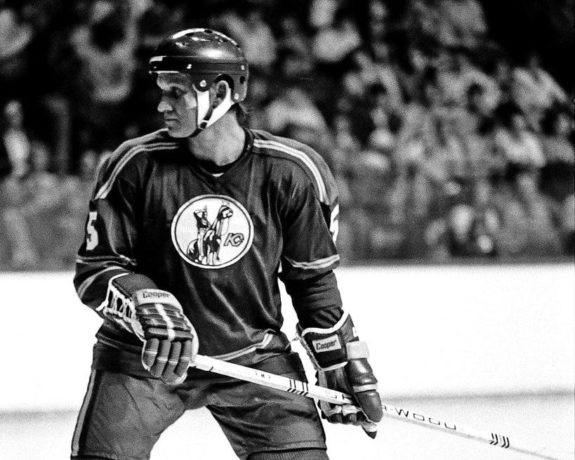
Bergman played in 75 of the team’s 80 games that season. In the process, he tallied five goals, 33 assists and 38 points. That led all Scouts defenders in scoring, and saw Bergman finish third overall on the team among all skaters. Those 33 assists were his most in a season for his entire 12-year career.
Furthermore, Bergman was an important role model for a very young Scouts hockey club.
4) Simon Nolet
The Scouts did themselves well at the 1974 NHL Expansion Draft. After they and their fellow newcomers, the Washington Capitals, selected goaltenders through the first four selections, it was Kansas City that made Simon Nolet the first skater selected with the fifth overall pick. Nolet, who was fresh off of a Stanley Cup victory with the 1973-74 Philadelphia Flyers, became the Scouts inaugural team captain.
Nolet was a decent goal scorer, with four seasons of 16 or more goals for Philly. Captaining the Scouts, he had a career-year in 1974-75 as he set all career highs in goals (26), assists (32) and points (58). Those totals saw Nolet lead or tie for the team lead in each category.
Nolet scored the first goal in Scouts history – an Oct. 9, 1974 tally against the Toronto Maple Leafs and goaltender Doug Favell. He would be named to the 1975 NHL All-Star Game as the sole representative for Kansas City.
Despite Nolet being one of the more skilled Scouts, he would end up being traded along with Ed Gilbert and a 1st-round draft pick on Jan. 8, 1976 to the Pittsburgh Penguins. In addition to receiving Chuck Arnason and a 1st-round pick of their own, the deal brought heavily feared pugilist Steve Durbano to Kansas City, and was designed to add some much needed toughness to the team’s roster.
Nolet’s 36 goals in a Scouts uniform are third-most all-time, while his 83 points are second-highest.
3) Denis Herron
Perhaps no player was more important to the Scouts than goaltender Denis Herron.
Having initially gone with the maligned netminding tandem of Michel Plasse and Peter McDuffe, Kansas City knew they had to get better in the goal crease and fast. The team sent Plasse to the Pittsburgh Penguins on Jan. 10, 1975 to receive Herron and defender Jean-Guy Lagace. A commendable trade by the Scouts, no doubt.
Herron proceeded to play 22 games for the team after the trade, going 4-13-4 as his record. He stopped 687 shots of the 767 that he faced, and compiled a .896 save percentage in return – a far from terrible number on such a challenged team. Additionally, Herron’s 3.75 goals-against average for the Scouts that season is the only GAA to be below 4.00 in the team’s history.
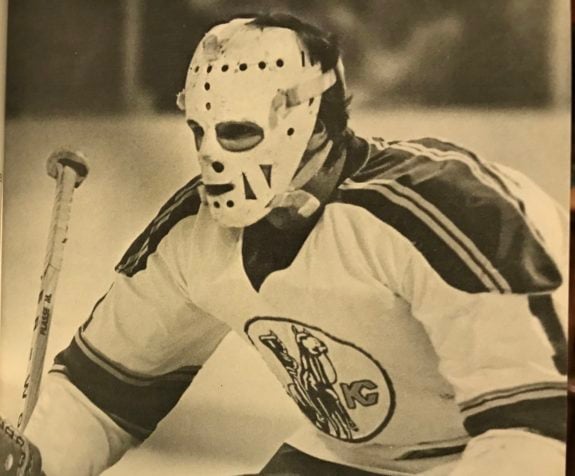
Finding their cornerstone, the Scouts saw Herron become the NHL’s busiest goaltender in 1975-76. He led the entire league in both shots against (2,211), and more importantly, saves with 1,968 while playing 64 games. Subsequently, Herron earned a record of 11-39-11.
For a Scouts team that went 12-56-12 overall, were it not for Herron, those wins and ties totals would have easily been in the single digits.
He would go on to play 10 more seasons in the NHL, winning the Vezina Trophy in 1981 and the Jennings Trophy in 1982, both while with the Montreal Canadiens.
2) Guy Charron
Guy Charron is probably the most skillful player to have worn the Scouts uniform. In what was a rare instance of the team utilizing some zeal, Kansas City obtained Charron and Claude Houde from the Detroit Red Wings on Dec. 15, 1974 in exchange for Bart Crashley, Larry Giroux and Ted Snell. The Scouts won the trade hands down, as Crashley, Giroux and Snell all had careers that never materialized following the transaction.
Charron, on the other hand, would proceed to generate five straight seasons of 35 or more assists. He went 13-29-42 in scoring in 51 games after arriving to Kansas City in December to finish second in points behind Nolet.
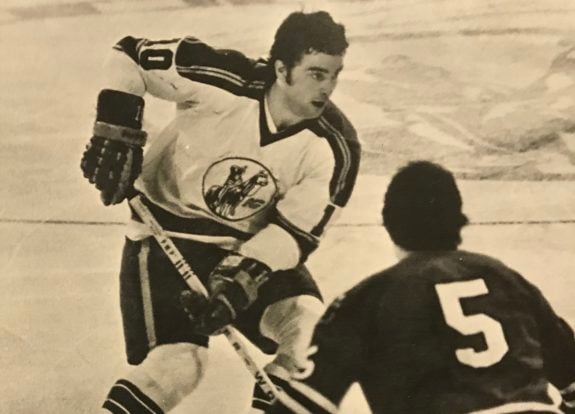
Settled in with his new team, Charron became the Scouts quintessential player in the 1975-76 season. Going 27-44-71 in scoring through 78 games, he led the club in all three major offensive categories. Charron’s 44 helpers were the first of three 40-assist seasons in his career.
Additionally, he is the Scouts all-time leader in assists (73) and points (113). Charron is the only player in the team’s existence to reach or surpass the 100-point plateau while wearing the Kansas City uniform.
1) Wilf Paiement
Possessing the second overall pick of the 1974 NHL Amateur Draft the Scouts chose Wilf Paiement to become their mainspring.
It should be no real surprise that Paiement sits at the top of our list. As a rookie in 1974-75, he played in 78 regular season games, led the team with 101 penalty minutes and tied with Nolet in the goal scoring column (26). His 39 points as a rookie place him at fourth for scoring.
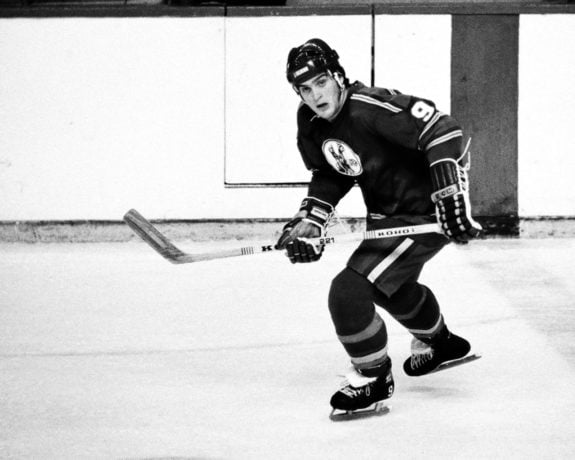
Paiement missed some time in his sophomore season of 1975-76, but he continued what would become 11 straight seasons of 20 or more goals. Playing in 57 games of the 80-game scheduled, Paiement finished second on the Scouts for goals (21) and points (43). He would represent Kansas City at the 29th NHL All-Star Game played in Philadelphia on Jan. 20, 1976.
Paiement’s 47 goals and 222 penalty minutes in a Scouts uniform are both records for the team’s 2-season history. The solid right winger would have an NHL career of 946 regular season games, across seven different teams. Paiement completed his career in 1988 season having scored 356 goals in total. He was also the last active player to have suited up for the Scouts at the time of his retirement.
